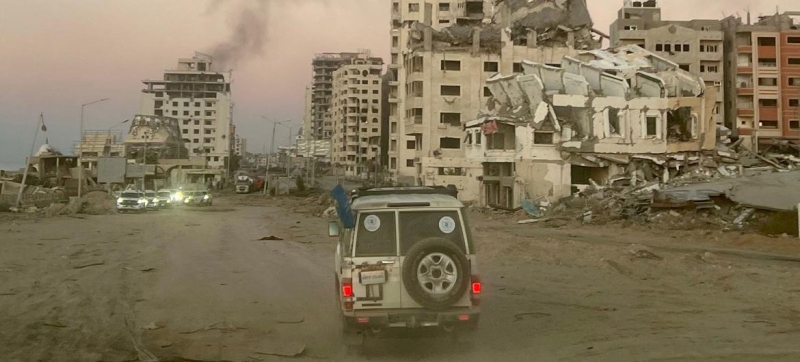
The aftermath of the fighting in Gaza. Gaza remains one of the most dangerous places for civilians and aid workers Humanitarian assistance
The situation in Gaza continues to deteriorate, said UN Under-Secretary-General for Humanitarian Affairs and Emergency Relief Coordinator Tom Fletcher, as he wrapped up his first trip to the Middle East as head of UN humanitarian operations.
The week-long visit took him to Damascus, Homs, Aleppo, Idlib, Ankara, Beirut, Nabatieh and Amman, where he met with UN agencies, humanitarian organizations, authorities and local communities.
Fletcher also met with humanitarian teams working in the Gaza Strip and the West Bank, who he said were facing unprecedented challenges.
The situation in Gaza
The UN Deputy Chief recalled that in January 2024, the International Court of Justice issued the first provisional measures in the case of the application of the Genocide Convention in Gaza, concerning the situation of civilians and the humanitarian situation in the Strip. Almost a year later, the enclave remains one of the most dangerous places for civilians and aid workers, Fletcher said, adding that Israeli airstrikes have destroyed schools, hospitals and other vital infrastructure.
Read also:
UN agencies on Gaza situation: two million people trapped
According to him, the north of the Strip has been under a near-total blockade for more than two months, the south is overcrowded, and winter conditions are further deteriorating living conditions. The threat of mass starvation is growing, and even areas where people are displaced by Israeli authorities are being bombed.
Humanitarian workers face serious challenges and security threats, including military action, looting and denial of access, Fletcher stressed.
Crisis in the West Bank
The head of the UN Office for the Coordination of Humanitarian Affairs also said that the situation in the West Bank is deteriorating, and 2024 was a record year for the number of deaths in the region. As a result of Israeli operations, key infrastructure, including roads and water networks, has been destroyed, particularly in refugee camps. Settler violence, home demolitions and restrictions on freedom of movement are increasing humanitarian needs, Fletcher added.
Support from the global community
The UN Emergency Relief Coordinator stressed that despite the unprecedented challenges, humanitarian workers continue to help those affected. He called on the international community to uphold international humanitarian law, support the work of the UN Relief and Works Agency for Palestine Refugees in the Near East (UNRWA), and seek the safety of civilians and the release of all hostages held by Hamas.
